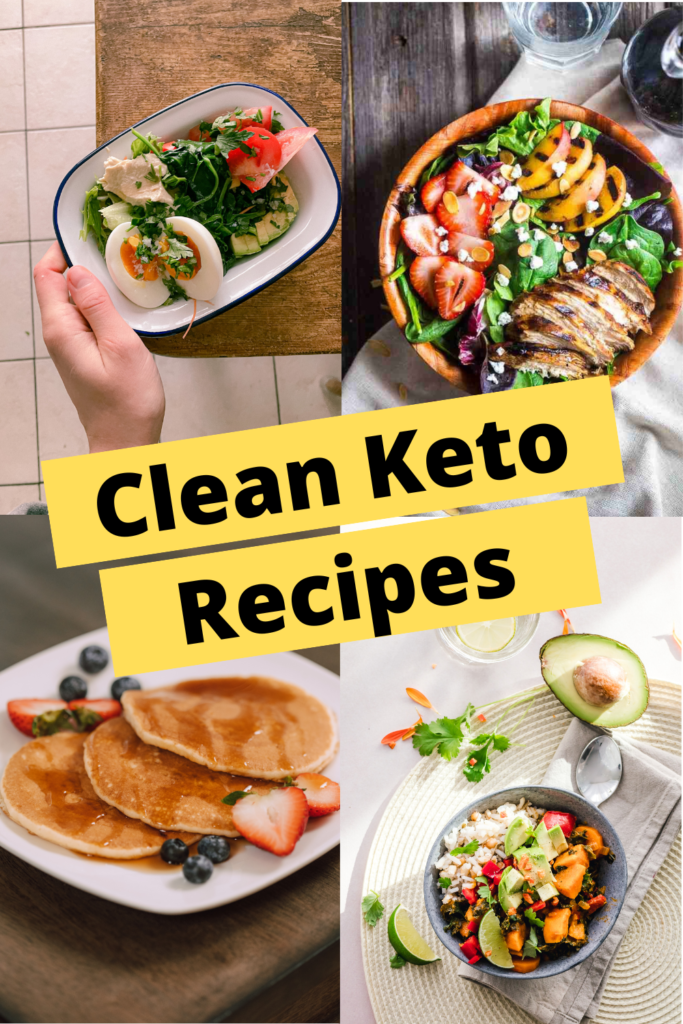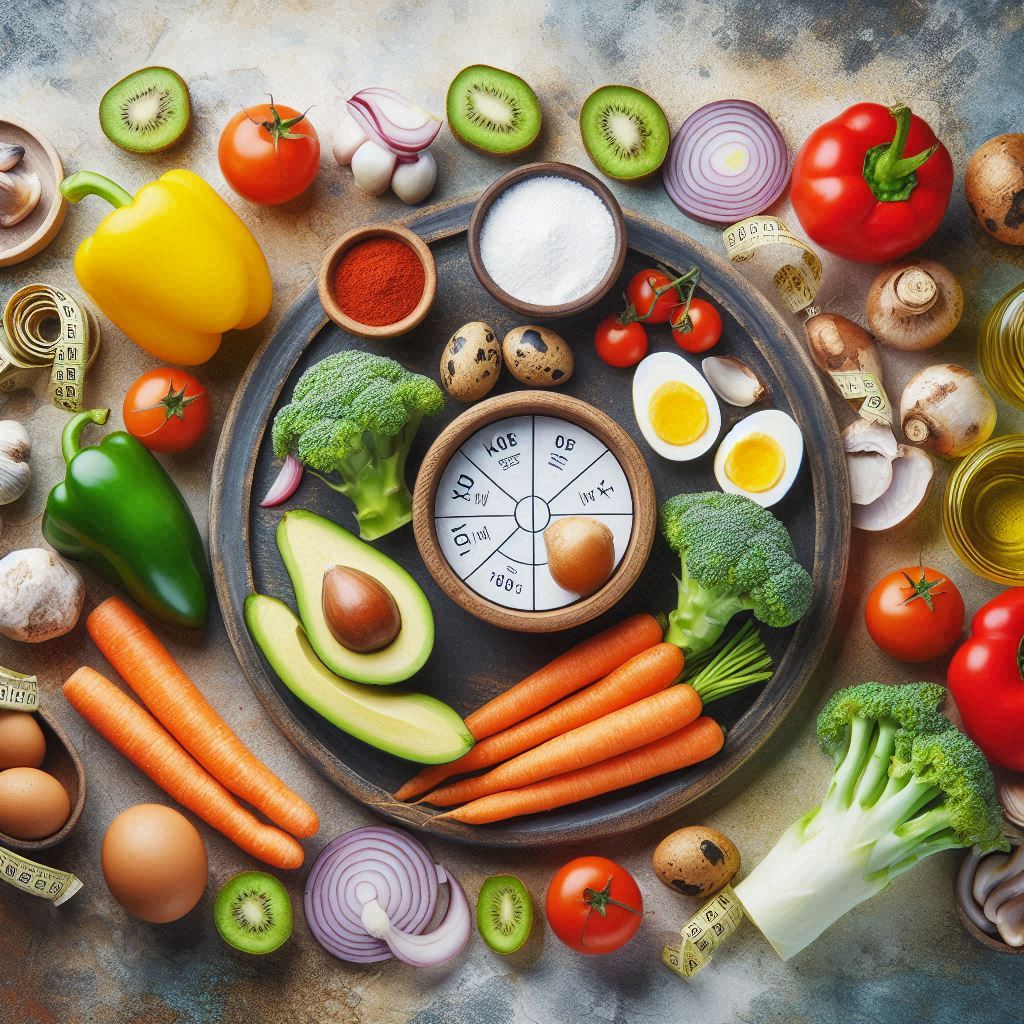
The Ketotarian diet is designed to combine the benefits of both Vegetarian/vegan and keto diet, this diet is plant based. Ketotarian diet was created by Dr will Cloe This diet emphasizes Low-carb, high-fat, and moderate-protein principles while focusing on plant based foods, the diet is completely flexible those who want to add eggs and fish can add them .
Key Elements of the Ketotarian Diet
- Healthy Fats: It prioritizes fats from plant sources, such as nuts, seed, olives, and coconut oil.
- Moderate protein: Relies on protein sources that fit within a vegetarian or pescatarian diet, such as eggs (if included), nuts, seeds, and in some cases, fish.
- Minimal or No Meat: Avoids red meat, poultry, and other animal products that are typically part of traditional keto diets.
- Low-Carb Vegetables: Includes plenty of non-starchy, low-carb vegetables, such as leafy greens, zucchini, and cauliflower.
Benefits of Ketotarian Diet
- Weight management: The uses of low-carb helps us to maintain weight while providing plant-based nutrients.
- Heart Health: As this diet use plant based materials, this emphasis on healthy fats, along the reduced animal fat, can support your health.
- Reduced Inflammation: By focusing on plant-based foods, the Ketotarian diet is thought to help reduce inflammation, which can be beneficial for overall health.
- Increased Energy: there has been many reports that improved energy levels and mental clarity, similar to traditional health.
Ketotarian Diet: Comprehensive Food Guide and Meal Plan Chart
| Category | Recommended Foods | Benefits | Foods to Avoid |
|---|---|---|---|
| Healthy Fats | – Avocados – Olive oil – Coconut oil – Nuts (almonds, walnuts) – Seeds (chia, flax, pumpkin) | Provides energy, supports brain health, and aids in satiety | – Processed oils (corn, canola) – Margarine |
| Low-Carb Veggies | – Leafy greens (spinach, kale) – Cruciferous veggies (broccoli, cauliflower) – Zucchini – Asparagus | High in fiber, vitamins, and minerals; keeps carbs low for ketosis | – Starchy vegetables (potatoes, corn) |
| Proteins | – Eggs (optional) – Tofu and tempeh – Nuts (almonds, pistachios) – Seeds (pumpkin, chia) – Fish (salmon, sardines) | Helps maintain muscle mass and supports metabolic health | – Red meat – Processed meats – Poultry |
| Fruits | – Berries (blueberries, raspberries) – Avocado – Coconut (unsweetened) | Provides antioxidants and fiber; keeps sugar intake low | – High-sugar fruits (bananas, grapes) |
| Plant-Based Dairy Alternatives | – Coconut milk – Almond milk – Cashew cheese | Dairy-free and lower in carbs; good for those who avoid dairy | – Dairy milk – Regular cheese (if strictly plant-based) |
| Condiments & Spices | – Herbs (basil, cilantro) – Spices (turmeric, cinnamon, black pepper) – Vinegars (apple cider, balsamic) | Adds flavor and health benefits without extra carbs | – Sugar-laden sauces (ketchup, barbecue sauce) |
| Snacks | – Nuts and seeds – Olives – Seaweed snacks – Avocado slices | Satiates hunger and provides nutrients without interrupting ketosis | – Chips – Processed snacks – Sugary granola bars |
Sample Ketotarian Meal Plan
| Meal | Example Dish |
|---|---|
| Breakfast | Avocado and spinach smoothie with coconut milk and chia seeds |
| Lunch | Mixed greens salad with olive oil, hemp seeds, sliced cucumber, olives, and avocado |
| Snack | Handful of walnuts and a few blackberries |
| Dinner | Cauliflower rice stir-fry with tofu, broccoli, bell peppers, and a drizzle of sesame oil |
| Dessert (Optional) | Coconut yogurt with a sprinkle of chia seeds and a few raspberries |
Ketotarian Macronutrient Ratios (Approximate)
| Macronutrient | % of Total Calories |
|---|---|
| Fats | 60-75% |
| Proteins | 15-25% |
| Carbohydrates | 5-15% |
Benefits Recap
- Sustained Energy: Healthy fats provide long-lasting fuel.
- Reduced Inflammation: A focus on plant-based foods can reduce inflammation.
- Heart Health: The diet’s emphasis on unsaturated fats supports cardiovascular health.
- Weight Management: The diet aids in managing weight while keeping one in ketosis.
- Mental Clarity: Keto benefits with plant-based nutrients enhance focus and clarity.
History and Origins of the Ketotarian Diet

Dr. Will Cole, a functional medicine expert and chiropractor with a focus on natural, holistic approaches to health. He is also the creator of Ketotarian Diet. As he observed That many of his patients benefits from traditional keto diets but many of his patients struggled with the animal-heavy approach that traditional keto diet entails. As keto gained popularity, concerns were raised about the sustainability and potential negative health impacts of a diet heavily focused on meats and animal-based fats, which can lead to inflammation, digestive discomfort, and long-term heart risks in some individuals.
Because of these challenges Dr. Cole got inspired and set out to create a version of the keto diet that emphasized plant-based, anti-inflammatory foods while still maintaining the low carb, high-fat principles that help the body to enter the ketosis. His goal was to bridge the gap between ketogenic and vegetarian/vegan diets, enabling people to enjoy the benefits of ketosis—like increased energy, weight management, and mental clarity—without relying on large amounts of animal fats and proteins. This innovative approach was called the Ketotarian diet, blending the words “keto” and “vegetarian” to reflect its unique focus on plant-centered eating within a keto framework.
Dr. Cole introduced the Ketotarian diet to the public in his 2018 book, Ketotarian: The (Mostly) Plant-Based Plan to Burn Fat, Boost Your Energy, Crush Your Cravings, and Calm Inflammation. In the book, he outlines how the Ketotarian diet combines elements from both keto and vegetarian diets, focusing on health-boosting fats from plants, such as avocados, olives, nuts, and seeds, and minimal animal-based foods, like eggs and certain fish, if desired.
Here’s a comparison table that highlights the key differences between the traditional ketogenic diet and the Ketotarian diet by Dr. Will Cole:
| Aspect | Traditional Keto Diet | Ketotarian Diet by Dr. Will Cole |
|---|---|---|
| Primary Focus | Achieving ketosis through high-fat, low-carb intake | Achieving ketosis with plant-based, anti-inflammatory fats |
| Fat Sources | Primarily animal-based (meat, butter, cheese, lard) | Primarily plant-based (avocado, coconut oil, nuts, seeds) |
| Protein Sources | Mostly animal-based (meat, eggs, dairy) | Mostly plant-based (nuts, seeds, tofu, tempeh) with optional eggs and fish |
| Carbohydrate Limit | Very low (<5-10% of daily calories) | Very low (<5-10% of daily calories), with more focus on low-carb veggies |
| Common Foods | Meat, cheese, heavy cream, oils | Leafy greens, avocado, olives, nuts, seeds, coconut, optional fish |
| Nutrient Density | Can lack fiber and phytonutrients from plants | Rich in fiber, antioxidants, and phytonutrients |
| Anti-Inflammatory Focus | Not typically focused on anti-inflammatory foods | Emphasizes anti-inflammatory, plant-based ingredients |
| Heart Health | May include high amounts of saturated fats | Focuses on heart-healthy unsaturated fats from plants |
| Sustainability | Can be challenging for those seeking lower environmental impact | More eco-friendly due to plant-based focus |
| Health Benefits | Weight loss, mental clarity, stable blood sugar | Weight loss, mental clarity, reduced inflammation, heart health |
| Popular Among | Those comfortable with high meat and dairy intake | Those seeking keto benefits with a plant-based focus |
| Flexibility for Vegetarians/Vegans | Limited, challenging to avoid animal products | Suitable for vegetarians, adaptable for vegans |
This table gives a clear view of how the Ketotarian diet combines the core benefits of keto—like fat-based energy and ketosis—with the plant-based, anti-inflammatory advantages of vegetarian/vegan diets, offering a more balanced approach for those seeking health and sustainability.
Unlock Your Health Potential with the Ultimate Ketogenic Diet eBook! 🥑📘”
Are you ready to take control of your health and discover the power of the ketogenic diet? This comprehensive eBook is your all-in-one guide to achieving results through keto—from meal planning to delicious, easy recipes!
What you’ll get inside:
- A complete beginner’s guide to the keto diet
- Easy-to-follow meal plans to keep you on track
- Over 100 delicious, keto-friendly recipes
- Tips to avoid common keto pitfalls
- Success stories and expert advice to inspire you
Whether you’re a keto beginner or looking to refine your knowledge, this eBook makes it easy to understand and follow keto. Click here to get your copy today!
👉 Join thousands who are experiencing the benefits of keto: stable energy, weight loss, mental clarity, and more. This is your roadmap to keto success—don’t miss out!